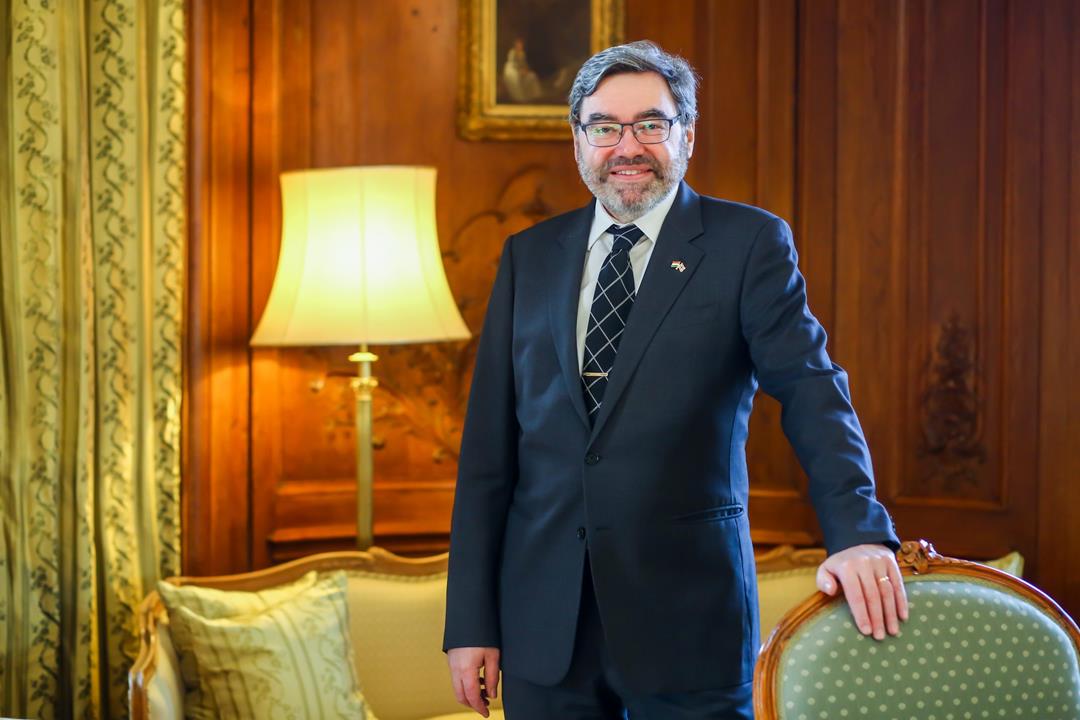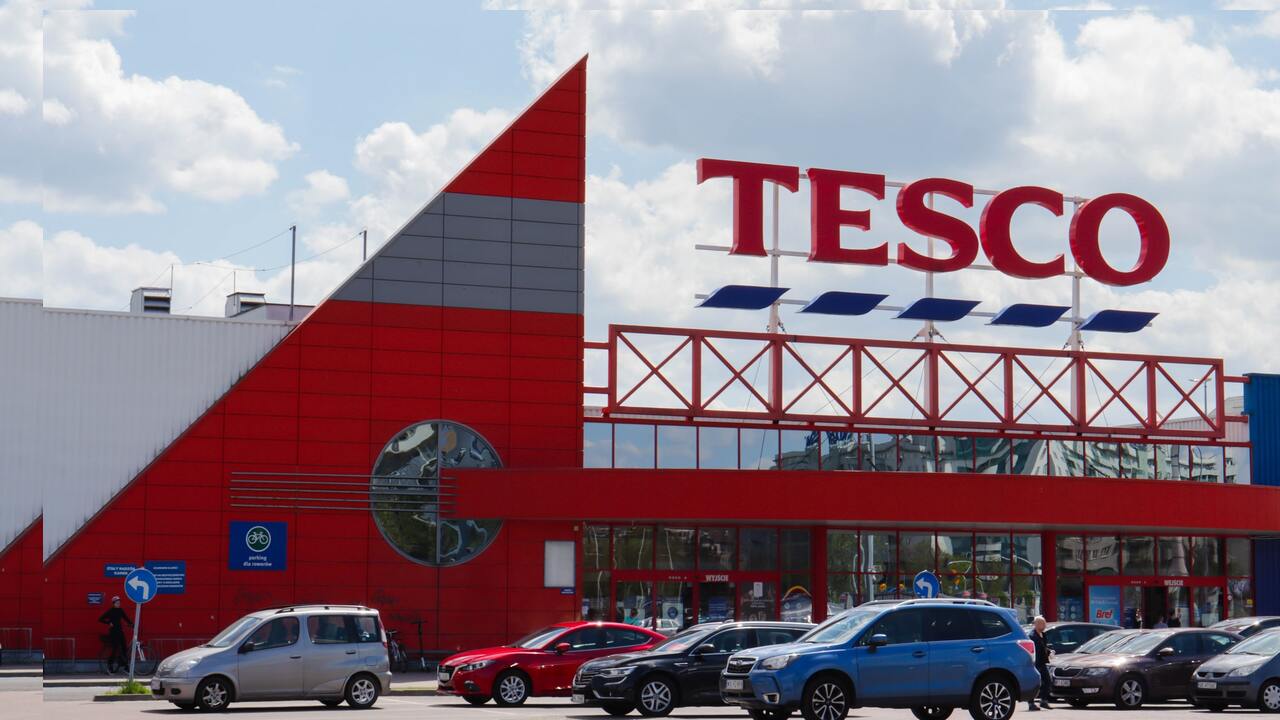We did an interview with His Excellency Paul Fox, King Charles III’s ambassador to Hungary, in which we talked about current issues like the ongoing war in Ukraine, the Pécs Pride, Brexit and the work of the British Council in Budapest. The ambassador even shared his favourite Hungarian dishes and a traditional Hungarian ‘dream menu’.
DNH: You live in a picturesque palace in Buda and are a respected member of society. Tell us a bit about Budapest through the eyes of an ambassador.
H.E. Paul Fox: It is a privilege to be the British Ambassador in Budapest and in Hungary generally. The city is one of the most beautiful in the world, the country is at the heart of Europe and the role is brilliant. I have found my hosts to be more than welcoming and the diplomatic community vibrant and supportive. The residence is beautiful, and we are custodians of an important historic building, though I wouldn’t call it a palace.
DNH: Have you had the chance to explore rural Hungary? Which country town would you take your friends to when visiting?
H.E. Paul Fox: I try to visit different parts of Hungary regularly, getting out of Budapest at least once a month. My most recent excursion was to Pécs, where I took part in the Pride march. It is impossible to single out any one town. Each has its owns charms whether it be Sopron, Szeged, Debrecen or Székesfehérvár.

DNH: It is well known that many Hungarians have emigrated to the UK. How significant is the Hungarian minority over there? Has their number now stopped rising since Brexit? How many British people live in Hungary?
H.E. Paul Fox: Our departure from the EU brought an end to the free movement of people between the UK and the EU. This obviously has an impact. However the Hungarian community remains significant, numbering around 170,000 who preserved their rights under the Withdrawal Agreement.
It is safe to say that the UK’s withdrawal from the EU came as a shock to many. However, a significant proportion of Brexit supporters may not have fully believed that the process would actually go through. Separation is always challenging, but things can smooth out with time.
DNH: How would you describe the UK-EU relationship now? And how is the rapport between Budapest and London?
H.E. Paul Fox: The agreement of the Windsor Framework, which smoothed out arrangements over Northern Ireland, has improved the relationship. Both sides have built on this by agreeing UK’s rejoining of the Horizon programme which will increase scientific and technological cooperation. The overall point is that the relationship between the UK and EU will always be important and will remain vibrant.
As an EU member and NATO ally, the UK views the relationship with Hungary as important, especially now that we both face the challenge posed by Russia to our security with its unprovoked invasion of Ukraine. We might not always agree on all matters but we both remain staunch partners of the Euro-Atlantic alliance, and we are keen to increase our mutual prosperity and foster strong people-to-people links.
DNH: As we wrote earlier: “London has fallen, there’ll be a general election on July 4, there’s an Islamist organisation, and the country’s culture is changing,” Zoltán Kovács, the state secretary for international relations and communications said, adding that much the same was true in Germany and France and everywhere illegal migration was prevalent. “There is a war going on next door. The Hungarian government is desperate for peace, but Ukraine understandably does not want to lose any of its territory. What is your government’s position?
H.E. Paul Fox: Russia’s assault on Ukraine is an unprovoked, premeditated and barbaric attack against a sovereign democratic state. It is the defining struggle of our generation. The UK and our international partners stand united in condemning the Russian government’s reprehensible actions. They are an egregious violation of international law and the UN Charter. This should matter to every country, no matter where they are in the world.
DNH: Let’s move on to economic issues. What Hungarian goods can Brits find on supermarket shelves?
H.E. Paul Fox: In the UK, a variety of Hungarian goods are available, reflecting the rich culinary and cultural heritage of Hungary. These include foods and beverages, such as paprika, essential for Hungarian dishes like goulash, sausages and meats, like Gyulai and Csabai kolbász, and wines and spirits, such as Tokaji wine and pálinka.
DNH: There are many British firms in Hungary. What are the three biggest British companies present in our country?
H.E. Paul Fox: The UK is among the largest foreign investors in Hungary. British companies have carried out nearly $6 billion worth of investments in Hungary, employing over 50,000 people. There are around 15 major UK investors operating in Hungary. What do we mean under “big”? The size of a company can be measured by different factors, such as registered capital, turnover, or the number of employees, to name a few. Significant players include Tesco, Shell, GSK and Unilever.

DNH: The British Council contributes significantly to Budapest’s rich diversity. Can you introduce the institution and tell us about its mission in your own words? What are the major upcoming cultural events the Hungarian public can attend?
H.E. Paul Fox: British Council is the UK’s international culture and education organisation. Our bilateral relationship with Hungary is based on strong people-to people relationships where the British Council plays a vital part of UK soft power by finding ways to connect, build understanding and trust through the Arts, the English language and by brokering creative and collaborative partnerships between the people of Hungary and the UK. The British Council’s three key activities Arts amplification, English Teaching and Examination are all present in Hungary and contribute to the above mission, mainly targeting the youth and young people. In their language school they offer a range of English language courses for individuals of all ages and proficiency levels. They provide learners with the opportunity to improve their English language proficiency and achieve their language learning goals.
The British Council Hungary administers globally recognised English language exams, such as the International English Language Testing System (IELTS) and Cambridge English exams. These exams serve as accurate measures of language proficiency and provide individuals with internationally recognised qualifications.
They co-organise cultural events such as exhibitions, performances, and film screenings to promote cultural understanding. They offer educational opportunities, share the UK’s expertise and innovation, and bring partners together to work on collaborative projects. Their Youth Leadership Programme supports young people to gain skills to contribute to trust-building and cohesion in their societies and respond to contemporary challenges such as climate change and artificial intelligence.
DNH: King Charles III is a regular visitor to Szeklerland and popular among Hungarians. What virtues of the new monarch would you highlight?
H.E. Paul Fox: His Majesty has learnt so much from his mother, Her late Majesty. Above all he appreciates the vital role the monarch plays in providing stability and continuity to the United Kingdom.
DNH: Hungarian hospitality begins and ends with a huge feast. What are your favourite Hungarian dishes (starter, main course, dessert)?
H.E. Paul Fox: Hungarian cuisine is truly delightful. For a starter, I enjoy a bowl of goulash soup (gulyásleves), rich with meat and paprika. My favourite main course is stuffed cabbage rolls (töltött káposzta), and for dessert, I can’t resist some somlói galuska, a delicious trifle made with sponge cake, chocolate sauce and whipped cream.
Read also:
British Ambassador Paul Fox managed to gain the respect of the Hungarian people. The British Ambassador respects the sovereignty of the nation and the fact that the two nations will not always agree on every policy.
It would be nice if Pressman the American Ambassador was exchanged, even a frog would be better.
Great interview with good questions by DNH and effective responses by H.E. Paul Fox. My takeaway was an upgrade of my knowledge to realize that the British and Dutch units of Shell merged in 2022 to form Shell plc listed in London. I’m sure any ambassador is happy to have a posting in Budapest.
What was the reason for the British Ambassador to mention that he took part in the Pride march?
So it looks that he is part of less than 2% population of homosexuals, and he is proud to be one. In the past, he would never be allowed to be in his position.
The world is changing — the majority can be ignored without impunity.
Is it possible that Ambassador Fox took part in the parade to demonstrate the world that there really is not discrimination against adults choosing a different lifestyle. It is also important to support the Child Protection legislation.